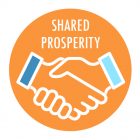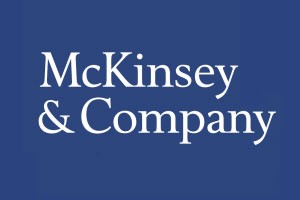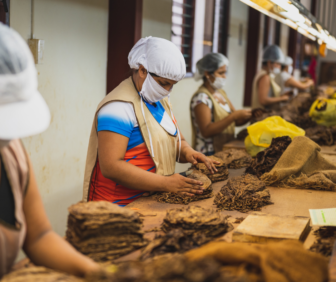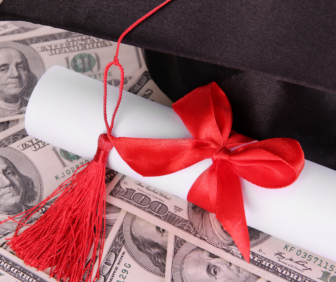
Must read new report from McKinsey entitled Unequal America: Ten insights on the state of economic opportunity. The findings come from an online survey conducted by Ipsos of 25,000 Americans in the spring of 2021. Results are reported on for Americans as a whole as well as for a wide variety of demographic and geographic subgroups.
McKinsey describes the report as spotlighting Americans’ views on economic opportunity, the obstacles they face, and the path ahead to create a more inclusive economy.
McKinsey writes:
What we learned was sobering. Among the findings: Americans report that their financial situations have deteriorated over the past year, and at the time of our survey only half of all respondents reported being able to cover their living expenses for more than two months in the event of job loss. Our survey results also indicated that the pandemic has harmed the economic well-being of many groups, exacerbating inequalities that existed before the crisis. Americans reported facing numerous barriers to economic opportunity and inclusion—among them, inadequate access to health insurance and physical and mental healthcare, as well as to affordable childcare. Moreover, many respondents said that they feel their very identity limits their access to jobs and to fair recognition and reward for their work.
Specifically McKinsey found in the midst of the pandemic:
- Most Americans’ current overall outlook is not optimistic. Forty-two percent of respondents said that they believe that most Americans have opportunities to find good jobs; one-third said that they believe that most people are recognized and rewarded fairly for their work; and 32 percent said that the pay that most Americans receive for their work allows them a good quality of life
- Many Americans believe that their identity hampers their career prospects. “Among the most unambiguous findings in our survey was that a wide variety of Americans—among them, women, people of color, and gay, lesbian, and bisexual respondents—said that they believe that their very identity negatively affected their job prospects.”
- Immigrants and people of color reported relative optimism. McKinsey’s Economic Opportunity Index scores reveal that on average, first- and second-generation immigrants and workers of color expressed some of the most optimistic views of economic opportunity among all survey participants.
- Half of Americans reported being on the financial brink. Only half of all respondents—and fewer than half of all parents—reported being able to cover their living expenses for more than two months if they or someone in their family were to lose their job.
- COVID19 has exacerbated existing inequalities. Women and people of color have been hardest hit by the pandemic. This is in part because people in these groups are more likely to work in occupations that have reported the highest levels of income and job loss.
- Healthcare access is a major challenge for many; women and workers of color face unique barriers.
- Access to childcare is a critical barrier, especially for women.
- Rural Americans are at risk of being left behind economically. “The stated preference among rural residents to stay put, combined with a lower relative interest in training, could over time put them at much greater risk of losing work to automation trends than their urban counterparts.”
- Gig workers would overwhelmingly prefer permanent employment. Fully 62 percent of gig workers said that they would prefer to work as permanent employees.
- Four in ten Americans are either enrolled in training or are interested in pursuing it. 39 percent of respondents said that they are looking, or are planning to look over the next 12 months, for education, training, or credentialing opportunities, while 14 percent are currently enrolled in programs.
The report provides details on how America’s K shaped economy, in real time, is impacting the well being of American households. And provides some surprising finding on Americans’ perceptions about their economic future. At its core the survey provides more evidence of a two-tier American economy. One where those at the top are doing well, but way too many are struggling.
By and large the report portrays an America where people want to work and earn a living that allows them to enjoy a decent standard of living to raise a family and pass on a better opportunity to their children. But also an America with an economy that makes it hard for far to many to enjoy a decent standard of living to raise a family and pass on a better opportunity to their children.
An America with a labor market, even when the economy was booming, has too few jobs that pay family-sustaining wages and provides health coverage and paid leave. And an America that holds back far too many because of their identity.
The economic challenge of our generation is eliminating what McKinsey calls an Unequal America. To build an economy that as it grows benefits all. Where all really means all.







